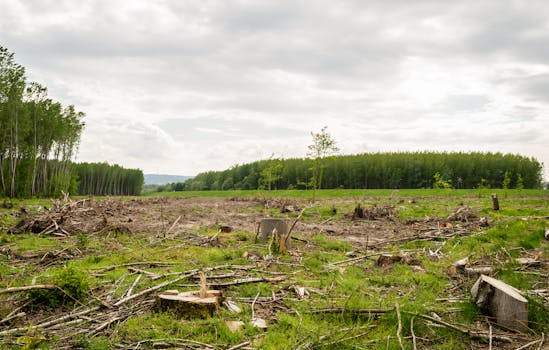
Introduction

The impact of climate change on global ecosystems is profound and far-reaching. Climate change refers to long-term shifts in temperatures and weather patterns, primarily caused by human activities, particularly the burning of fossil fuels. These changes have significant repercussions for ecosystems worldwide, affecting biodiversity, habitat stability, and species survival.
Effects on Biodiversity

One of the most critical impacts of climate change is on biodiversity. As temperatures rise and weather patterns become more unpredictable, many species struggle to adapt or migrate to more suitable environments. For instance, coral reefs, often termed the “rainforests of the sea,” are particularly vulnerable. Increased sea temperatures lead to coral bleaching, which can devastate marine biodiversity.
Similarly, terrestrial ecosystems face challenges. Species such as polar bears and certain bird populations are at risk as their habitats change. The loss of biodiversity can disrupt ecosystem services that humans rely on, including pollination, water purification, and carbon sequestration.
Habitat Loss and Alteration

Climate change contributes to habitat loss through rising sea levels, increased frequency of extreme weather events, and shifting climatic zones. Wetlands, which serve as vital ecosystems for numerous species, are declining due to rising sea levels and altered precipitation patterns. Additionally, forests are experiencing increased susceptibility to pests and diseases, further jeopardizing wildlife.
Impact on Ecosystem Services

Ecosystem services are the benefits that humans receive from nature, such as food, clean water, and air. Climate change threatens these services as ecosystems become less stable and resilient. Agriculture, for example, is highly sensitive to climatic changes. Crop yields may decline due to altered growing seasons, increased pests, and reduced water availability.
Moreover, the loss of forests due to climate change can lead to increased carbon emissions, exacerbating the very problem that caused their decline. This creates a vicious cycle that further impacts global ecosystems and human livelihoods.
Conclusion

The impact of climate change on global ecosystems is a critical issue that demands urgent attention. As ecosystems face unprecedented changes, it is essential to implement sustainable practices that mitigate these impacts. Protecting biodiversity, restoring habitats, and promoting awareness about climate change can help preserve the delicate balance of our planet’s ecosystems for future generations.



